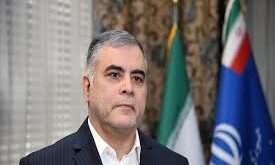Iran has asked OPEC to support it against new U.S. sanctions and signaled it is not yet in agreement with Saudi Arabia’s views on the possible need to increase global oil supplies. creating potential problems for OPEC at its meeting next month.
Iran`s Oil Minister Bijan Zanganeh talks to journalists at the beginning of an OPEC meeting in Vienna. Austria. November 30. 2017. REUTERS Heinz-Peter Bader
Iran. the arch-rival of Saudi Arabia. has a history of being difficult at OPEC meetings including in 2015 when the country refused to sign up to OPEC policies. saying it needed to raise output due to the easing of sanctions following Tehran’s accord with major world powers.
U.S. President Donald Trump earlier this month pulled out of that nuclear deal with Iran and announced the “highest level“ of sanctions against the OPEC member. Iran is the third-largest oil producer in the Organization of the Petroleum Exporting Countries after Saudi Arabia and Iraq.
“I would like to … seek OPEC’s support in accordance with Article 2 of the OPEC Statute. which emphasizes safeguarding the interests of member countries individually and collectively.“ Iranian Oil Minister Bijan Zanganeh said in a letter seen by Reuters.
Zanganeh also suggested in the letter that Iran was not in agreement with some OPEC ministers’ recent comments on the oil market. He said some OPEC ministers “have implicitly or unwittingly spoken for the organization. expressing views that might be perceived as the official position of the OPEC.“
The energy ministers of Saudi Arabia and Russia said last week they were prepared to ease output cuts to calm consumer worries about supply.
Raising output would bring an end to about 18 months of strict supply curbs amid concerns that oil price have risen too far. Oil price have hit their highest since late 2014. rising above $80.50 a barrel this month. but have since eased.[O R]
Since the original sanctions were lifted. Iran has struggled to raise production above 4 million barrels per day due to a lack of new projects and the caution of Western investors.
So if OPEC decides to increase supplies. Iran is likely to benefit less than Saudi Arabia because it would struggle to raise output while it would also be hit by lower oil prices.
Zanganeh’s letter was addressed to the United Arab Emirates Energy Minister Suhail al-Mazrouei. who holds OPEC presidency in 2018.
Zanganeh also said that if the latest U.S. sanctions threat was resolved “Iran reserves the right to return to its oil market share in the shortest possible time and resumes its normal production-level and will not accept any limitations in this regard.“
Zanganeh asked Mazrouei to include a separate agenda item for the June OPEC meeting entitled “OPEC Ministerial Conference support to the Member Countries that are under illegal. unilateral and extraterritorial sanctions.“
In a separate letter. Mazrouei replied that there were two options available to discuss this issue.
The first is for the OPEC governors to review the request and include it for discussion in OPEC’s meeting later this year. which could be held in November. according to the letter seen by Reuters.
The second option is to include it in the June meeting under “any other business“ as a “Request from the Islamic Republic of Iran“. Mazrouei said. suggesting it will not be on the main agenda for the ministers.
OPEC governors meet next in October.
 Iran Energy News Oil, Gas, Petrochemical and Energy Field Specialized Channel
Iran Energy News Oil, Gas, Petrochemical and Energy Field Specialized Channel




